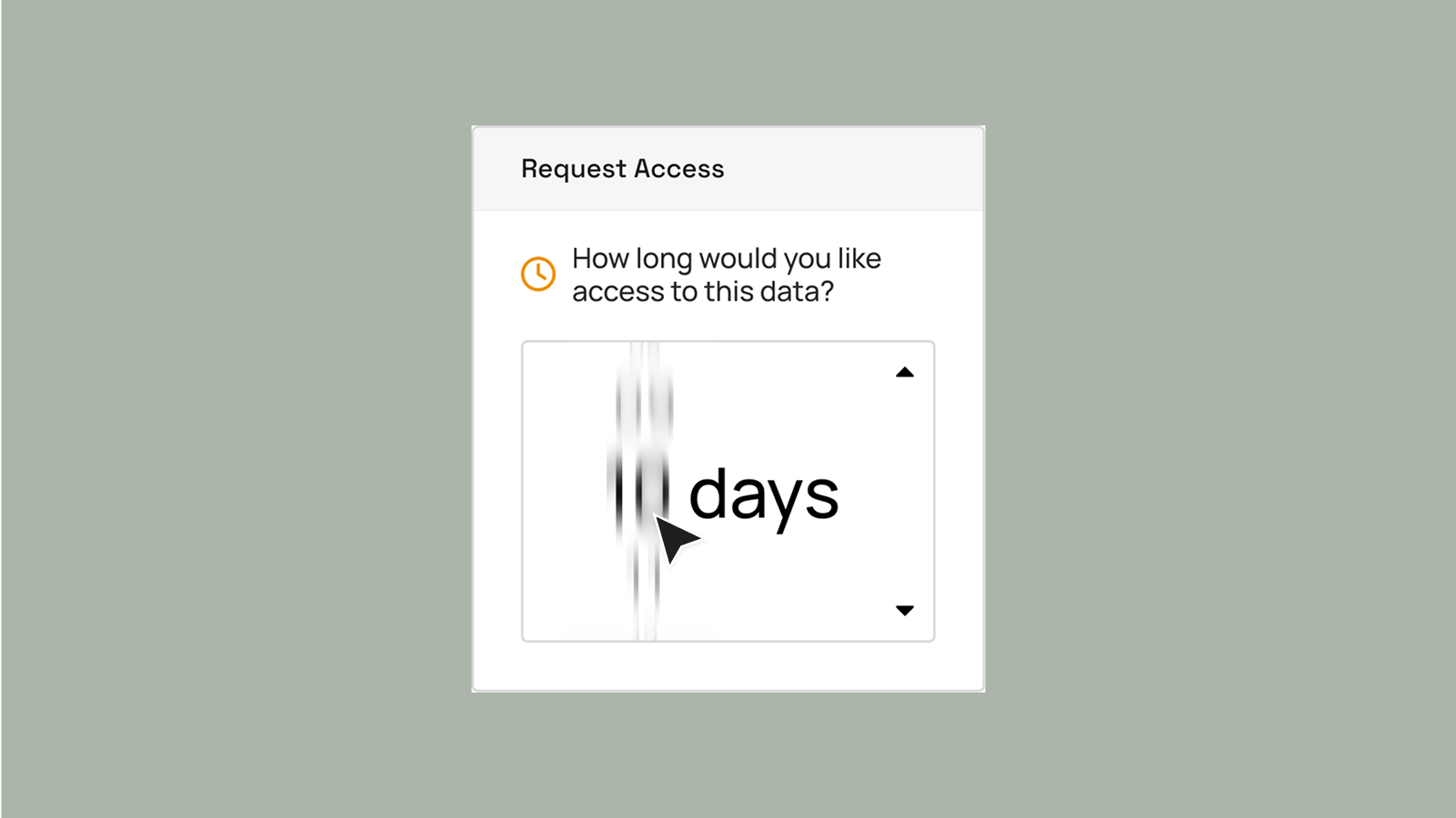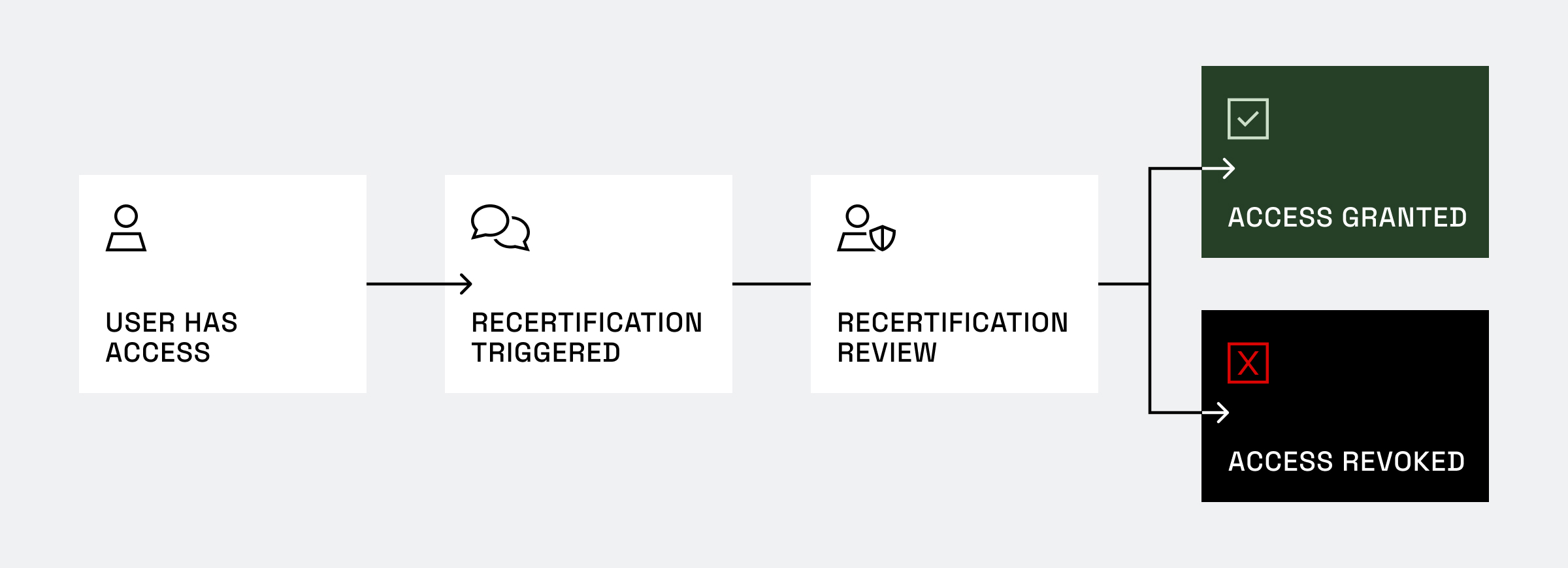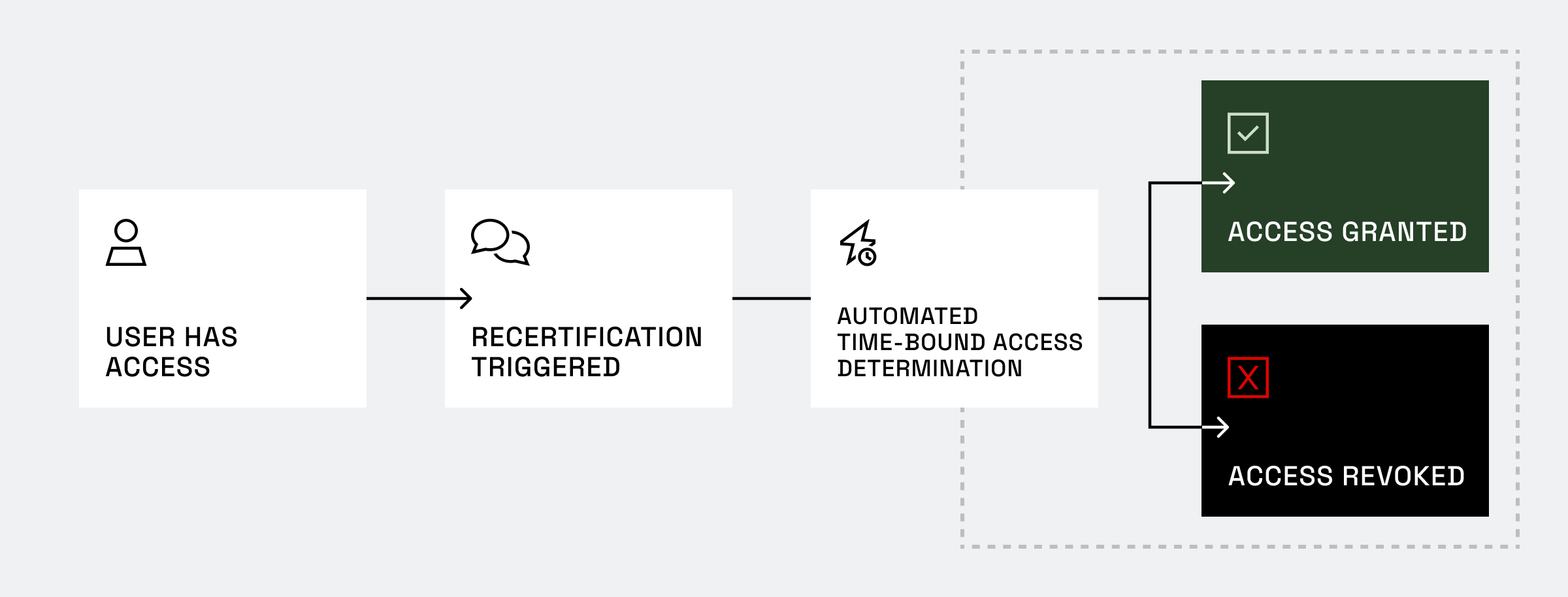
Permanent data access is putting enterprises at risk
When it comes to data, how much is too much?
We tend to think you can never have too much of a good thing – data included. But too much access to data can put your company, your customers, and your reputation at risk. Permanent entitlements are an unchecked liability, not to mention an operational burden.
Under the Sarbanes-Oxley (SOX) Act, publicly traded companies must prove they have strict, auditable controls over who can access data, and for how long. Yet in most organizations, access is a one-way street: once granted, it rarely gets revoked. And the longer access is approved, the higher the risk of fraud, insider threats, and SOX audit failures.
But there is a solution: time-bound data provisioning. In this blog, we’ll take a closer look at how it works – and why leveraging it will give you a greater competitive edge in the AI era.
What are access recertifications and do they work?
Access recertifications are periodic reviews where data owners must validate that each user still requires access to certain data.
SOX explicitly mandates recertifications for public companies. In theory, it’s a precaution; in practice, it’s a nightmare. Data stewards are often tasked with approving hundreds of entitlements at a time, often without context. The result is rubber-stamped approvals, audit fatigue, and persistent risk of exposure.

The complexity of data governance workflows only exaggerates recertification challenges:
- 40% of organizations involve 6–10 people in data governance
- One-third involve 20 or more people
With this many people, what should be a safeguard quickly becomes an inefficient and bureaucratic headache. Access recertifications may be a necessary evil, but they require significant time, attention, and resources to do right on an ongoing basis.
What’s clear? You need a better approach to managing recertifications – without making them someone’s full-time job. And as AI agents increasingly access data on behalf of human users, now is the time to act.
How time-bound data access simplifies SOX compliance
Time-bound data provisioning grants access only for a limited, predetermined period. It’s a straightforward way to replace endless recertification cycles with automatic expirations.
Instead of requiring reviewers to repeatedly verify that users still need access, automated time-bound access is revoked once it’s no longer justified. And if a user actually still needs access, they will request it again, creating a justified recertification of access – unlike ineffective, zero-context rubber stamping.

Time-bound access goes beyond checking the SOX compliance box and calling it a day. It bakes compliance into the review process itself. Think of it as a digital stopwatch on every dataset: access starts when it’s approved, and stops before it becomes a liability.
The business case for time-bound access: Less risk, fewer delays
The compliance advantage for time-bound access is clear, but what about the business case? Can faster recertification reviews really help the bottom line?
When you consider that 62% of data professionals say governance processes slow down data access, mostly due to manual approvals and legacy ticketing systems, the case becomes more clear. Time-bound access reduces these friction points by:
- Automating expirations
- Cutting down on approval overhead
- Creating an audit trail of true access justifications rather than an audit trail of meaningless rubber stamping
Ultimately, time-bound access benefits data teams by:
- Reducing the burden on IT and data stewards to manually handle recertifications
- Accelerating data access for data consumers by reducing review times
- Increasing confidence for data governors by ensuring recertifications are meaningful and accurate
- Making governance an enabler of data use, not a bottleneck
How does time-bound access work across industries?
For any publicly traded company – or those planning an IPO – SOX compliance is a major consideration (and often a big cross-functional undertaking). Failing to revoke access once it’s no longer warranted can:
- Incur fines up to $25 million for corporations and $5 million for executives
- Erode investor confidence, forcing the business to take a hit
- Expose companies to reputational damage that can take years to repair
Time-bound provisioning gives you the strongest possible defense, ensuring that sensitive data is never left exposed longer than necessary.
But SOX is only the beginning. Time-bound access is critical for compliance with industry-specific regulations, including:
- Healthcare and life sciences: HIPAA, GxP
- Retail and e-commerce: PCI-DSS
- Technology: GDPR, AI regulations
As data becomes an integral – and expected – part of the user experience, all sectors face growing pressure to demonstrate control over sensitive data, including data accessed by AI agents. Time-bound access is a universal safeguard — SOX is simply a highly relevant proving ground.
The future of governance: From recertification to auto-expiration
The era of permanent entitlements is ending. As self-service data platforms, AI systems, and hybrid architectures exponentially increase data access demands, the organizations that stay competitive will be those that treat data permissions not as a permanent right, but as a temporary contract.
Time-bound provisioning flips the paradigm. Instead of asking stewards to endlessly reapprove access, it ensures that access automatically expires before it becomes a liability. This shift transforms governance from a reactive burden into a proactive safeguard that reduces risk and improves compliance with regulations like SOX.
Compliance failures cost millions and destroy trust overnight. Time-bound provisioning is the ticket to secure, compliant, and scalable data governance.
Learn more.
Explore workflows that simplify data provisioning.
